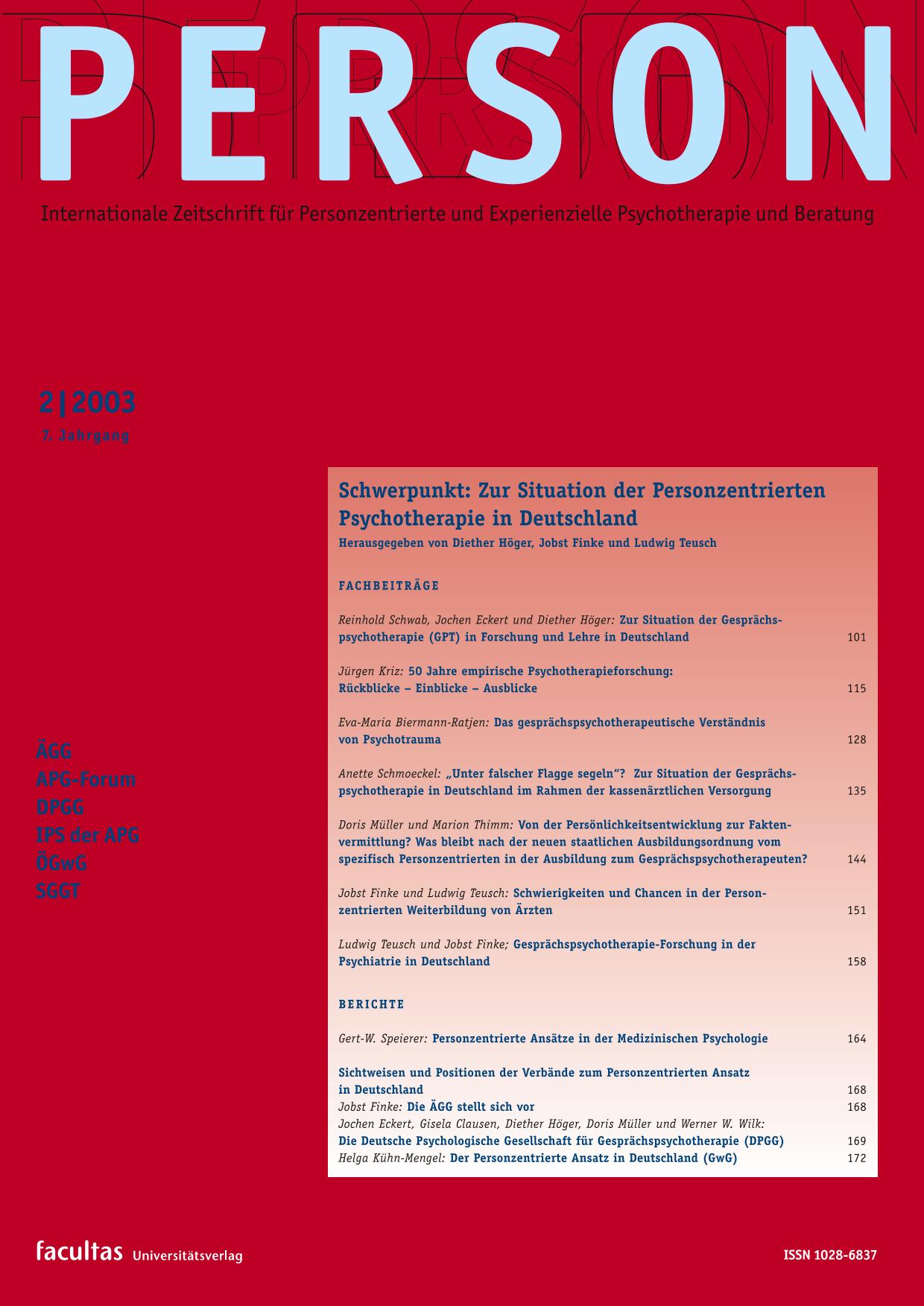50 Jahre empirische Psychotherapieforschung: Rückblicke – Einblicke – Ausblicke
Main Article Content
Article Sidebar
Abstract
50 Years of Empirical Research in Psychotherapy: Retrospection—Inspection—Expectation. The first part, retrospection, shows
that the great contribution of Carl Rogers’ research was not only in content but also in method. Many of the present APA criteria of psychotherapeutic research were developed by Rogers.
The second part, inspection, discusses the great influence of tacit ideological assumptions on modern controversies about research methods. In addition, three different motives of research—“justification”, “process-orientation” and “basic research orientation”—are revisited within the context of “qualitative” and “quantitative” methods.
The third part, expectations, is a plea to overcome the classical mechanistic models and metaphors which underlie even the humanistic approaches. If one replaces mechanistic principles (control, homogeneity, non-historical view, linearity and continuity, statics, and simple local causality) with more modern systems oriented principles (development, unfolding, emergence, phase-transition, systems-history, non-linearity, dynamics, contextuality, and ecological or holistic causality) then these principles correspond very well to the fundamental principles of psychotherapy. As a consequence, by using these models research in psychotherapy will not only catch up with the interdisciplinary discourse but will replace misleading and life-hostile metaphors by more adequate ones.
How to Cite
Downloads
Article Details
Person-centered approach, Research, Methods, qualitative-quantitative research, systems-theory

